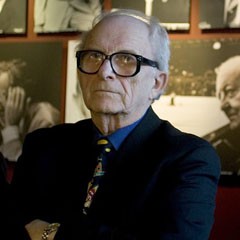
Fisher's surname belongs to a well-known American stock investor. Philip Arthur Fischer is also the author of Common Stocks and Uncommon Profits. This is a kind of investment guide. Fisher's work was first published in 1958, but it still holds the top spot in sales among financial literature.
In 1931, Arthur Fischer founded his own money management company. He called it "Fisher and Co."
Fisher graduated from Stanford University at the Graduate School of Business Administration. After graduating from the University, Arthur became a full-time analyst at one of the major banks, Anglo London and Paris National Bank.
Today, Arthur Philip Fischer is recognized as one of the founders of the idea of investment growth. And representatives of one of the major investment corporations – "Morningstar Inc." – named Philip Fischer one of the greatest traders and investors of recent times.
Arthur Fisher's Book
In his legendary book Ordinary Shares and Extraordinary Earnings, he answers the question "When is the best time to sell shares?". And his answer is recognized as the most witty – "Almost never."
- Ordinary shares and extraordinary earnings – Arthur Fischer download
One of Fisher's most famous deals is the purchase of Motorola shares. He bought them in 1955, when the company was engaged in the production of radio equipment, and did not sell.
His son Cannet Fischer also works in finance and investment. One of Arthur Philip Fischer's followers is the famous multibillionaire Warren Buffett. Among the list of his head teachers, he named Benjamin Graham and Arthur Fisher. He described Arthur Buffett as a giant of investment deals.
There are rumors about Fisher that instead of carefully studying every bank document and all the balance sheets, he personally got acquainted with the work of the organization and everyone who worked there.
Most people still agree to call this approach Arthur's main achievement in the investment business. Philip tried to focus only on the management of each company he was dealing with. He believed that only innovative leaders could correctly identify the company's potential. He always despised the approach when companies began to lay off employees en masse to reduce costs.
Philip Arthur Fischer left an indelible mark on the history of the financial industry.